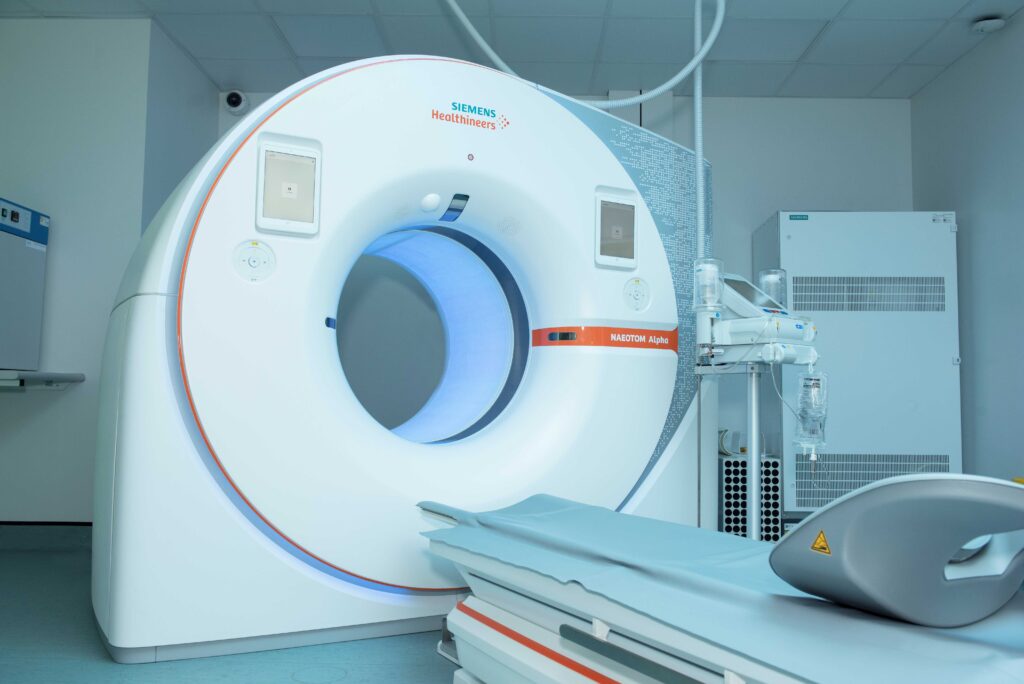A University of Oxford research team has developed an artificial intelligence (AI) technology which can accurately predict the risk of a heart attack, heart failure or cardiac death from routine cardiac CT scans, up to ten years in advance.

The study, funded by the British Heart Foundation and supported by the National Institute for Health and Care Research Oxford Biomedical Research Centre (BRC), analysed routine cardiac CT (computed tomography) scans and clinical data from over 40,000 people at eight hospitals in the UK. The paper was published in The Lancet.
Patients were followed up for a period of up to 10 years to identify whether they experienced any major cardiac events such as heart attacks, heart failure or cardiac death.
While the minority of people with significant coronary artery narrowing on the initial CT scan were more likely to have serious cardiac events or death, two thirds of these serious cardiac events happened among those who did not have significant narrowing of the arteries in their initial CT scan.
“Many thousands of patients who undergo a cardiac CT scan do not have significant narrowings of the heart arteries. These scans are often stored in hospital radiology systems for years without further use, but we could extract more information from these scans to guide preventative treatments,” said Professor Charalambos Antoniades, British Heart Foundation Chair of Cardiovascular Medicine at the University of Oxford and lead author of the study.
“Unfortunately, many of these people die from a cardiac cause later on because it was not possible to identify any signs of disease in their heart arteries at the time of their CT scan.”
Dr Kenneth Chan, a clinical research fellow at the University of Oxford and first author of the article, added: “The AI technology can detect the level of inflammation of the heart arteries, by detecting changes in the fat tissue around arteries that are not visible to the human eye. In this way we can identify patients with high inflammation and high risk.”
The research team were then able to use the technology to give the patient an AI risk score based on the level of inflammation of the heart arteries, combined with the patient’s health background including age, sex and whether they smoke, have diabetes and/or high blood-pressure.
The AI risk score not only accurately predicted the likelihood of cardiac events in the next 10 years, but also when the cardiac events would occur, as the prediction aligned well with the real-life cardiac events that were experienced by the patients in this study.
During a pilot study which involved integrating this technology in four NHS hospitals, researchers provided AI-generated risk-scores to doctors for 744 patients and in up to 45 percent of cases, doctors altered their patients’ treatment plan as a result.
Professor David Adlam, from the University of Leicester and one of the co-investigators, said: “We have demonstrated that providing a more precise picture of cardiac risk to clinicians and patients, can trigger timely administration of preventive treatments that could lead to fewer heart attacks and cardiac deaths.”
Bryan Williams, Chief Scientific and Medical Officer at the British Heart Foundation, said: “This new and exciting AI tool gives clinicians a glimpse into the futures of those most at risk of having a heart attack, heart failure and cardiac death in the next decade. Technological advances like this are increasingly valuable in guiding treatment decisions, helping clinicians to intervene at the right time to help patients avoid these devastating conditions.
“It is vital that we harness the power of AI to prevent countless unnecessary heart-related deaths. We hope this technology will be rolled out widely across the NHS to support everyone at risk.’
The technology is currently being piloted in several UK hospitals to see how the AI tools can be integrated with current NHS care.